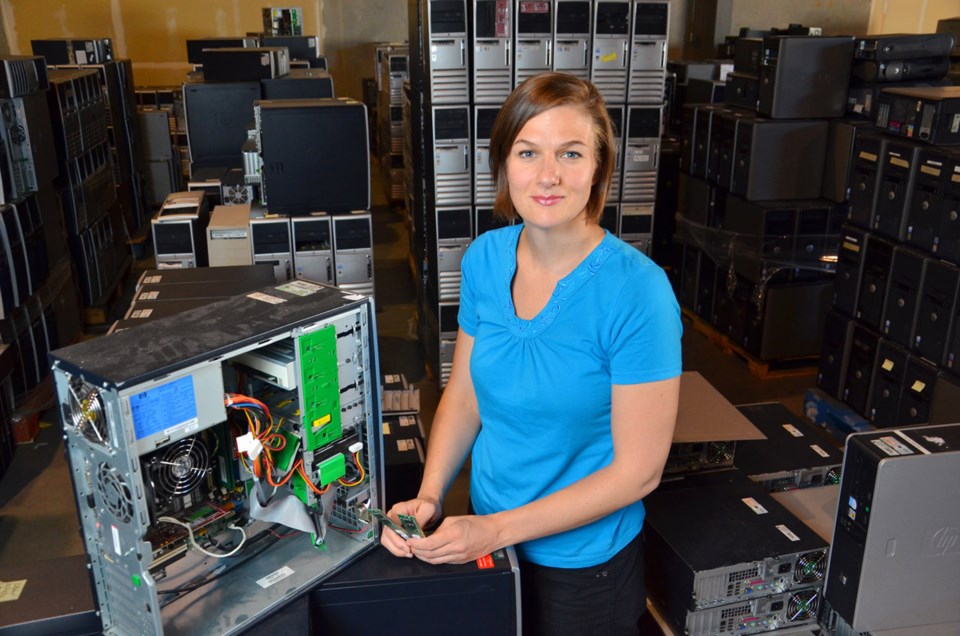Burnaby-based Computers for Schools is nearly the definition of an ecologically minded organization - the nonprofit recycles and refurbishes donated used computers and sells them to schools at low prices.
But Computers for Schools hasn't rested on its green laurels - it has examined the many ways it can be more sustainable, from its packaging to its light fixtures.
The nonprofit also signed the Burnaby Board of Trade's sustainability pledge this year.
"I think it's a great rallying point for businesses to look at what we are all doing and what we can each achieve and to really celebrate the reductions that we're making in greenhouse gas emissions and energy savings," Mary-Em Waddington, Computer for School's executive director said. "Learn from each other, mentor each other, and move forward, because we all have to live here."
The board's Climate Smart training program helped focus the nonprofit's efforts, according to Waddington, and she recommends it for other organizations.
"Honestly, I would start with the Climate Smart training," she said. "We had a lot of things in place by the time we started. It's a way to see what they would call the low hanging fruit, easy things that each business can do in its operations and organization to achieve better reductions in greenhouse gases and energy efficiencies."
Some of the nonprofit's efforts include introducing a composting and recycling program at the office, repurposing and reusing materials, offering an incentive program for schools so that they place large orders and Computers for Schools ships less frequently, and using recycled cardboard packaging instead of bubble wrap.
When the nonprofit moved to its northeast Burnaby location five years ago, they were able to build the 12,000-square-foot space to LEED Silver standards with the help of a "fantastic" contractor, according to Waddington.
"It was not done to Gold because we didn't do the outside construction, we just did the inside," she explained, adding Computers for Schools did not seek LEED certification on the project.
"We didn't actually go through the process because it was $10,000 and we're a nonprofit organization, and it wasn't good use for our dollars," she said.
All the organization's efforts have also yielded a leaner bottom line, according to Waddington.
"We've, I think, replaced two light bulbs in five years," she said. "It was a big cash upfront cost but we saved a lot of money on time and labour and not having to replace light bulbs all the time."
They are also saving on energy costs, she added.
"I find it hysterical that in the summer my gas bill each month is lower than the GST portion," Waddington said, laughing.
She encourages residents, as well as businesses, to look into sustainable options and incentive programs, such as the ones offered by Fortis B.C. and B.C. Hydro.
"Pay the money, get the right equipment in upfront, and then the cost savings will come in down the road," Waddington said. "Just go do it!"
Another way businesses can improve their ecological footprint? Donate used computers to Computers for Schools instead of throwing them away.
"We're always looking for more donations from businesses, so that's definitely one of the ways that we can help businesses achieve their reduction goals," Waddington said.
Click here for more information about Computers for Schools, including how to donate.



